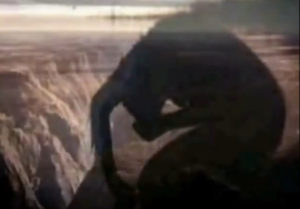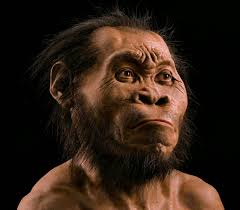The relationship between addiction and emotional anguish — primarily anxiety and depression — is well known. When we look for root causes of addiction, we inevitably ask why so many people are suffering. Here I reflect a bit, and link to a mind-blowing video, on suffering and evolution.
 Why is it so hard? Why is there so much suffering, in the world, in ourselves? That question comes up all the time, especially among us addicts (recovered or not). We’re not the only ones. We just tried to find a way out through the back door. The proportion of people in the Western World (e.g., the US) who suffer from anxiety and/or depression (and related conditions) is astronomical. And for today’s young people it seems to be getting worse, though that conclusion is conflated with changes in the way people communicate with each other and with mental health professionals.
Why is it so hard? Why is there so much suffering, in the world, in ourselves? That question comes up all the time, especially among us addicts (recovered or not). We’re not the only ones. We just tried to find a way out through the back door. The proportion of people in the Western World (e.g., the US) who suffer from anxiety and/or depression (and related conditions) is astronomical. And for today’s young people it seems to be getting worse, though that conclusion is conflated with changes in the way people communicate with each other and with mental health professionals.
 One simple answer is that we evolved from physical matter to become the unfathomably sensitive and intelligent creatures we are. And evolution doesn’t concern itself with suffering. In fact suffering (struggle, loss, and death) is a big part of what drives it.
One simple answer is that we evolved from physical matter to become the unfathomably sensitive and intelligent creatures we are. And evolution doesn’t concern itself with suffering. In fact suffering (struggle, loss, and death) is a big part of what drives it.
This question, always cycling though my dialogues with people in this community and others in my life, came back to me a few days ago when I received a long, detailed email from someone I don’t  know, someone who has struggled on and off with addiction throughout his life. He told me of his childhood traumas and hardships, and of the brutal treatment received by his parents in an internment camp during World War II who, as a result, were never able to give him what he needed as a child. He sees himself as someone who has to struggle and persevere just to get through each day, fending off anxiety, depression, hopelessness, and meaninglessness — you know, the usual quartet of background singers.
know, someone who has struggled on and off with addiction throughout his life. He told me of his childhood traumas and hardships, and of the brutal treatment received by his parents in an internment camp during World War II who, as a result, were never able to give him what he needed as a child. He sees himself as someone who has to struggle and persevere just to get through each day, fending off anxiety, depression, hopelessness, and meaninglessness — you know, the usual quartet of background singers.
What could I say to him? Advice? Meditation…sure, but he’s tried that and it hasn’t worked for him. Therapy? Tried that too. In a nutshell, there was nothing at all I could say to help him. I recalled my own explosive introduction to utter, fundamental helplessness, an experience on ayahuasca that I tried to convey to you in this post. Accepting one’s helplessness might be a way toward struggling less, or even giving up the struggle, and just living in the  present, accepting the ebb and flow of forces that sometimes bring happiness but undoubtedly bring suffering and lead, inevitably, to loss and death. And certainly these forces are intermingled with the disconnection, competition, and often cruelty that we face from other humans who are, when you stop and think about it, just as caught up in their own struggles to survive from day to day and hold onto a bit of happiness.
present, accepting the ebb and flow of forces that sometimes bring happiness but undoubtedly bring suffering and lead, inevitably, to loss and death. And certainly these forces are intermingled with the disconnection, competition, and often cruelty that we face from other humans who are, when you stop and think about it, just as caught up in their own struggles to survive from day to day and hold onto a bit of happiness.
You just want to scream: it’s so unfair!
 But there are other ways to think about it. Fairness is a construction we learn at around age five, and it has absolutely nothing to do with the natural universe. It’s just a social norm, a code for resolving petty rivalries. It’s no more relevant to nature than tea ceremonies or Facebook.
But there are other ways to think about it. Fairness is a construction we learn at around age five, and it has absolutely nothing to do with the natural universe. It’s just a social norm, a code for resolving petty rivalries. It’s no more relevant to nature than tea ceremonies or Facebook.
 In fact, we are lucky as hell to be here at all. And suffering is just part of the process that brought us here and that continues to give us the chance to evolve and, hopefully, to grow more intelligent, compassionate, and beautiful.
In fact, we are lucky as hell to be here at all. And suffering is just part of the process that brought us here and that continues to give us the chance to evolve and, hopefully, to grow more intelligent, compassionate, and beautiful.
I’m in San Francisco now, mainly to spend time with my father, who just turned ninety. He’s had a rapid but luckily temporary decline in cognitive function. He’s doing better. I’m going home soon. On my way here, I bought a book called Dancing with Elephants. It’s about how to be present, engaged, and even happy in the face of terminal illness, oncoming dementia, and — you guessed it — the inevitability of death. Yeah, cheery stuff. But it’s written by a  guy with Huntington’s Disease, a guy who is presently in the process of losing everything, his body and his mind. And he’s talking about connecting and accepting and loving. He’s nowhere close to despair. I’m only partway through and I can’t yet recommend it confidently, but take a look if you like. There are certainly gems of wisdom in the book, and even the fact that this guy can think this way and write this way is astonishing and uplifting.
guy with Huntington’s Disease, a guy who is presently in the process of losing everything, his body and his mind. And he’s talking about connecting and accepting and loving. He’s nowhere close to despair. I’m only partway through and I can’t yet recommend it confidently, but take a look if you like. There are certainly gems of wisdom in the book, and even the fact that this guy can think this way and write this way is astonishing and uplifting.
Anyway, I have nothing more to say on the subject of suffering. But I want you to watch this video, especially if you’ve not seen it before. I recently rediscovered it, and I think it is wonderful. There is so much in it, complexity and symmetry, perspective, and a vastly comprehensive view of who and what we are. But there’s also a simple message: evolution isn’t easy, suffering and death are always with us, but there is tremendous beauty in how we got here and where we might continue to go.


Leave a Reply